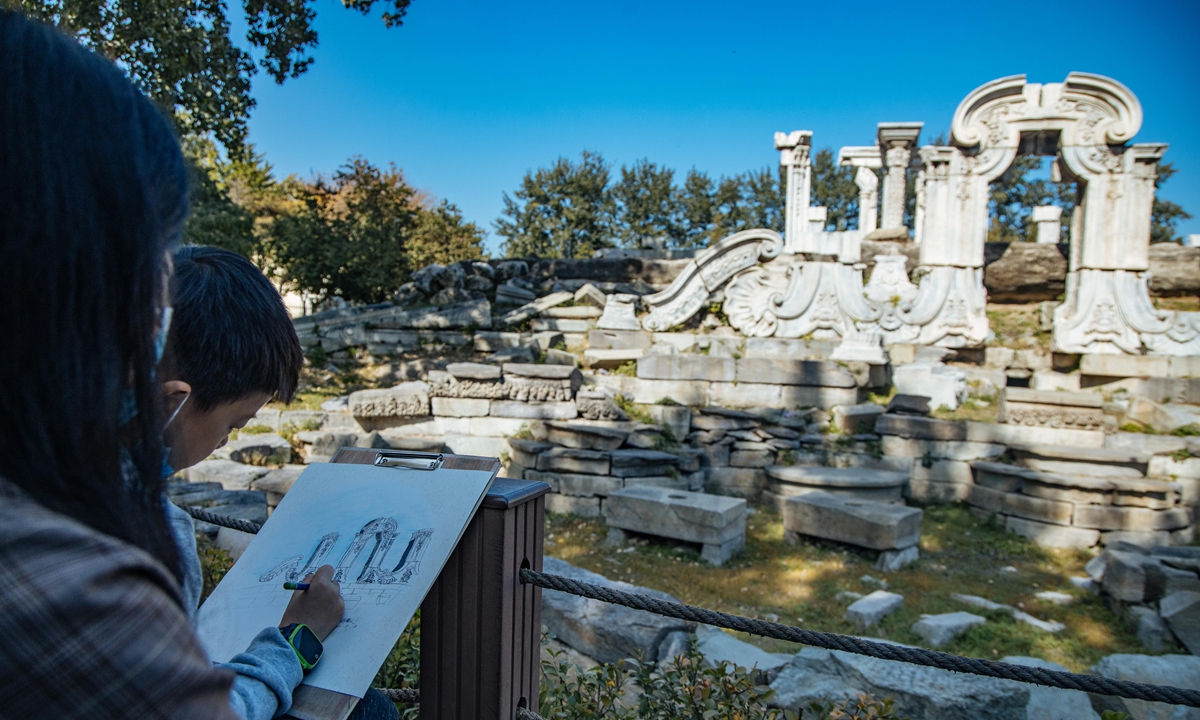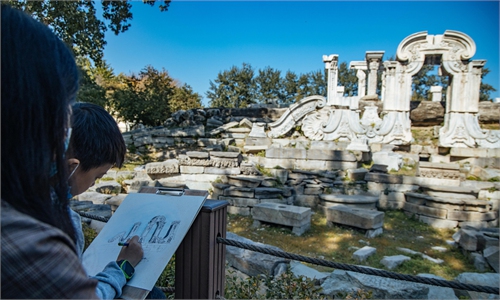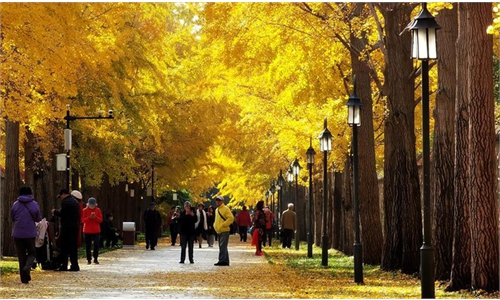Old Summer Palace to remain heritage site as authorities reject reconstruction bid: experts

A tourist sketches the ruins of the Old Summer Palace at the Yuanmingyuan Ruins Park on Sunday. The park in Beijing opened free of charge on Sunday to commemorate the 160th anniversary of the massive looting and destruction of the palace carried out by the Anglo-French Alliance Forces in 1860. Photo: Li Hao/GT
The debate over whether to rebuild the Yuanmingyuan (Old Summer Palace) to restore its royal glory or continue to lay bare the ruins left by foreign invaders has lately come to a conclusion.
China's National Cultural Heritage Administration (NCHA) recently responded to a proposal by a National People's Congress deputy to rebuild the Old Summer Palace, saying it lacks archaeological evidence and would erase the memory of historic humiliation when China was bullied by foreign invaders.
The issue of whether to reconstruct the royal garden has been widely discussed for years, with some suggesting that history should be preserved to educate future generations, while others support the idea as a restoration of the site's former glory. Observers noted that the controversy reflects the distinct attitudes of the Chinese public against the backdrop of the country's growing power on the global stage.
The Old Summer Palace is an alarm bell that warns people not to forget the country's humiliation at the hands of foreign powers, and restoring it requires the weighing up of the work's necessity and feasibility, the NCHA said in a statement earlier this month.
"The announcement has set the tone for the future plans for the Palace, which is to remain as a heritage site as a whole," Liu Zheng, a member of the China Cultural Relics Academy, told the Global Times on Monday.
"The relics are an important cultural heritage, not to mention the fact that restoring them would be extremely difficult, since some of the ancient pieces lie underground," Liu noted.
The value of the site does not lie in its extravagant landscape, but the tragic ending of its brutal destruction, Zaker News commented in an article, saying that preserving the relics could result in much more reflection than rebuilding them.
The historical value of the Old Summer Palace aside, some people are worried it will turn into a tourist attraction that looks like "neither fish nor fowl." A netizen commented on China's Twitter-like Sina Weibo that if large amounts of money are spent to rebuild it, the site may lose its ancient touch and end up looking like a theme park.
However, some have voiced support for the proposal, suggesting that it would help to rebuild national confidence and showcase the country's more powerful image.
"Now that China has stood out on the global stage as a strong, independent country, the reconstruction of the imperial garden serves as a 'landmark' of our national rejuvenation, and helps to boost our confidence," a Chinese national based in Indonesia, surnamed Lu, told the Global Times on Monday.
The current preservation project for the Old Summer Palace plans to restore 10 percent of the entire site, so that people can get an idea of its intricate design before it was destroyed, Liu Zheng explained.
The Beijing municipal government is considering using virtual reality or other modern technologies to showcase the park's past glories, as well as launching various archeological events to promote the cultural relics.
The Old Summer Palace was built as a resort for emperors of the Qing Dynasty (1644-1911) in a mix of Chinese and European styles. It was looted and burned to the ground in 1860 by French and British troops.


